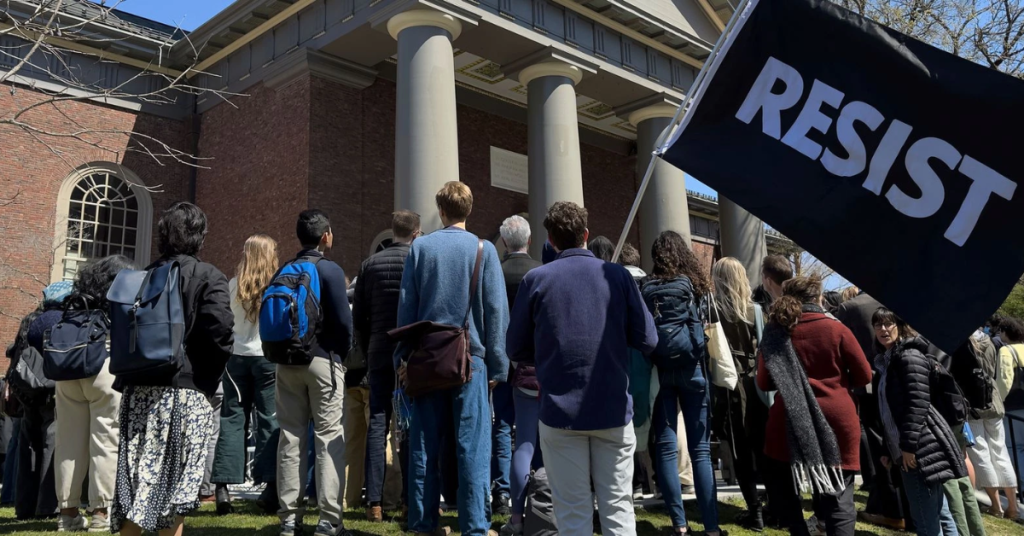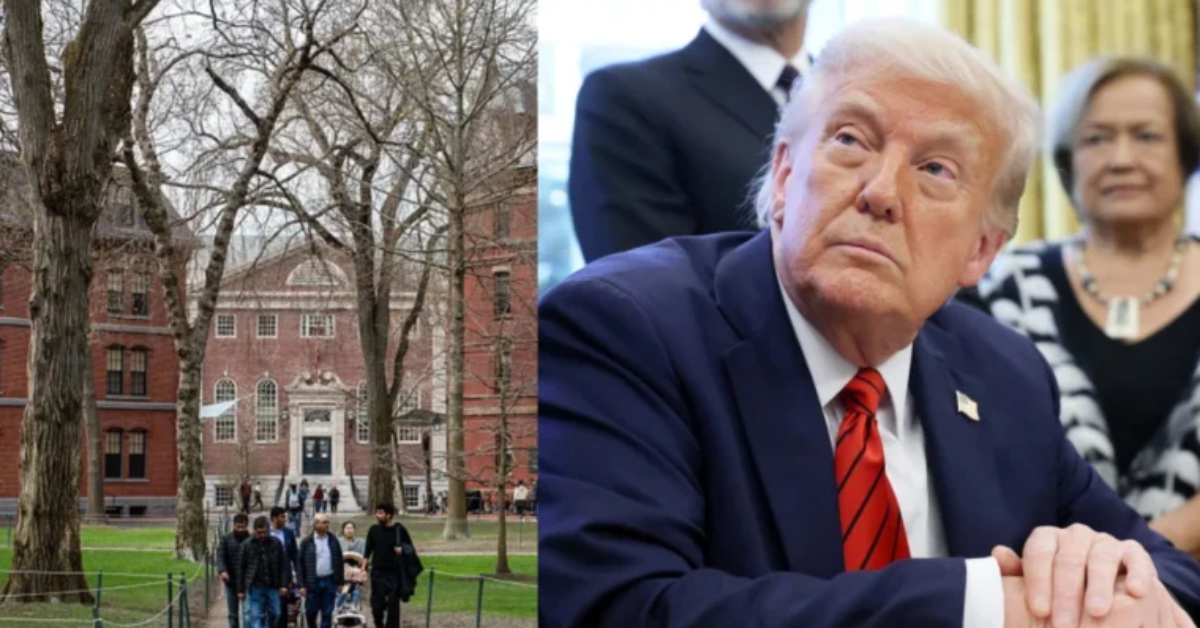Harvard University’s legal battle with the Trump administration has quickly become one of the most closely watched cases involving academic freedom and federal funding. The lawsuit, filed after the Trump administration froze $2.2 billion in research funding for the university, argues that the freeze was an illegal and unconstitutional move that violated Harvard’s academic independence.
Legal experts say that Harvard has a strong case, and the outcome could have far-reaching implications for the relationship between the federal government and academic institutions.
The case began when the Trump administration imposed a funding freeze on Harvard’s research grants in early April, citing the university’s failure to meet specific political demands. These included reforms to Harvard’s admission and hiring policies, prioritising ideological balance among students and faculty.
Harvard resisted these demands, arguing that they infringed upon the university’s academic freedom and violated the First Amendment’s protection of free speech and academic independence. The administration’s decision to freeze the funds came just days after Harvard rejected its demands, and the university filed the lawsuit shortly thereafter, seeking to reverse the freeze.
Harvard’s legal team argues that the Trump administration’s actions were a violation of both the law and the university’s constitutional rights. The lawsuit alleges several legal violations, including those under the Administrative Procedure Act (APA), Title VI of the Civil Rights Act of 1964, and the First Amendment of the U.S. Constitution.
Legal experts interviewed by The Crimson, Harvard’s student newspaper, have expressed confidence that the university’s case will fare well in court. Michael J. Gerhardt, a professor at the University of North Carolina School of Law, described the Trump administration’s actions as “egregiously illegal” and noted that the penalties and sanctions sought by the administration were extreme and unjustified.
Harvard’s legal complaint cites three key laws that it claims the administration violated: the Administrative Procedure Act, Title VI of the Civil Rights Act of 1964, and the First Amendment. Under the Administrative Procedure Act, federal agencies are required to follow specific procedures before taking actions that affect the rights of institutions like Harvard.
The university argues that the Trump administration did not follow these procedures, acting quickly and without adequate notice. Harvard also contends that Title VI of the Civil Rights Act, which regulates federal funding to educational institutions, requires a thorough investigation before any funds can be withheld or revoked. The university argues that the Trump administration did not conduct the necessary investigation before freezing its funding.
One of the most significant aspects of the case is the argument over academic freedom. Harvard claims that the Trump administration’s actions were an unconstitutional interference with the university’s ability to govern its academic affairs.

The university argues that the government cannot dictate its admission policies, hiring practices, or academic content, as this would violate the First Amendment’s guarantee of freedom of speech and academic inquiry. The lawsuit also contends that the Trump administration’s demands, including screening international applicants for their beliefs and prioritising ideological diversity, are clear violations of the university’s rights under the First Amendment.
Harvard’s lawsuit also addresses the speed at which the funding freeze was imposed. The Trump administration’s decision to freeze funding came swiftly, without following the standard notification and investigation procedures required by law. Harvard argues that the government’s actions were not only unconstitutional but also illegal because they bypassed the necessary legal process.
The university’s legal team notes that Title VI of the Civil Rights Act requires any action to revoke federal funding to be preceded by a thorough investigation and an opportunity for a hearing. Harvard argues that the administration’s decision to freeze funds without following these procedures was a violation of the law.
The lawsuit seeks to have the funding freeze lifted and to prevent the government from imposing any further cuts. Harvard has asked the U.S. District Court in Massachusetts to issue a preliminary injunction, which would stop the Trump administration from freezing any more funds while the case is being decided. The university is also requesting that the court expedite the resolution of the case, given the immediate and ongoing harm caused by the funding freeze.
Legal experts believe that Harvard has a strong chance of winning the case. Geoffrey R. Stone, a former dean of the University of Chicago Law School, stated that he believes Harvard will prevail in its lawsuit, noting that the Trump administration’s actions were “egregiously illegal” and violated both the law and the Constitution.
Peter M. Shane, an emeritus professor of law at Ohio State University, agreed, stating that Harvard’s case is compelling and likely to succeed in court. He noted that the federal district court is likely to be receptive to Harvard’s request for an expedited ruling, given the significant harm that the funding freeze is causing to the university’s research programs.
The case has broader implications for higher education institutions across the nation. If Harvard wins, the ruling could serve as a model for other universities facing similar pressures from the Trump administration. The outcome could set important legal precedents regarding the limits of government control over academic institutions.
A ruling in Harvard’s favour would reaffirm the principle of academic freedom and establish that the government cannot impose political demands on universities in exchange for federal funding.
On the other hand, if the court rules against Harvard, it could open the door for the government to impose more far-reaching restrictions on universities in the future. Legal experts have warned that a ruling against Harvard could pave the way for more government interference in the internal affairs of universities, including their hiring practices, admissions policies, and research agendas.
While the outcome of the case is still uncertain, Harvard’s lawsuit represents a critical test for the relationship between the federal government and academic institutions. The case raises important questions about the boundaries of government authority and the protections afforded to universities under the Constitution. Harvard’s legal team is confident that the university will prevail, and experts predict that the case will have significant implications for academic freedom in the United States.
As the legal proceedings continue, the case will undoubtedly be closely watched by universities and legal experts nationwide. Harvard’s fight against the Trump administration could have lasting effects on the landscape of higher education and the protections afforded to academic institutions in the face of political pressure.
Disclaimer: This article has been meticulously fact-checked by our team to ensure accuracy and uphold transparency. We strive to deliver trustworthy and dependable content to our readers.


